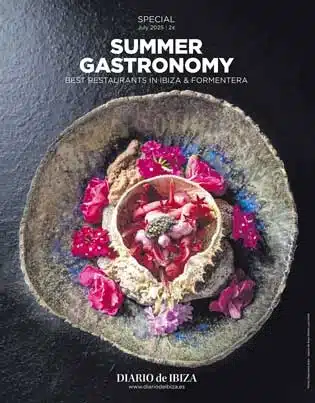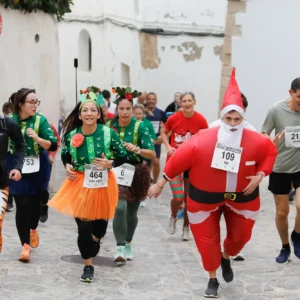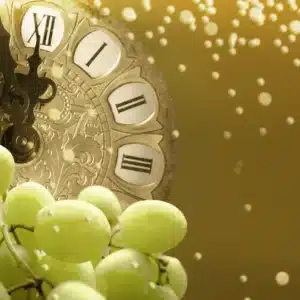Ibiza boasts a rich culinary heritage that shines during the festive Christmas season. The island’s traditional Christmas dishes are a testament to its agricultural roots and the influence of various cultures over the centuries. These festive foods not only delight the palate but also embody the spirit of togetherness and celebration that characterises the holiday season on the island.
1. Salsa de Nadal (Christmas Sauce)
At the heart of Ibicencan Christmas cuisine lies the Salsa de Nadal, a unique and labour-intensive recipe that holds a special place in the island’s festive traditions. This sweet sauce is primarily made from ground almonds, eggs, sugar, honey, and spices such as saffron and cinnamon. What sets it apart is the inclusion of meat broth, typically chicken or lamb, which imparts a distinctive depth of flavour. The preparation involves hours of slow cooking and constant stirring to achieve the desired consistency.
The Salsa de Nadal is traditionally served with bescuit, a local sponge cake, making it a cherished treat during the Christmas season.
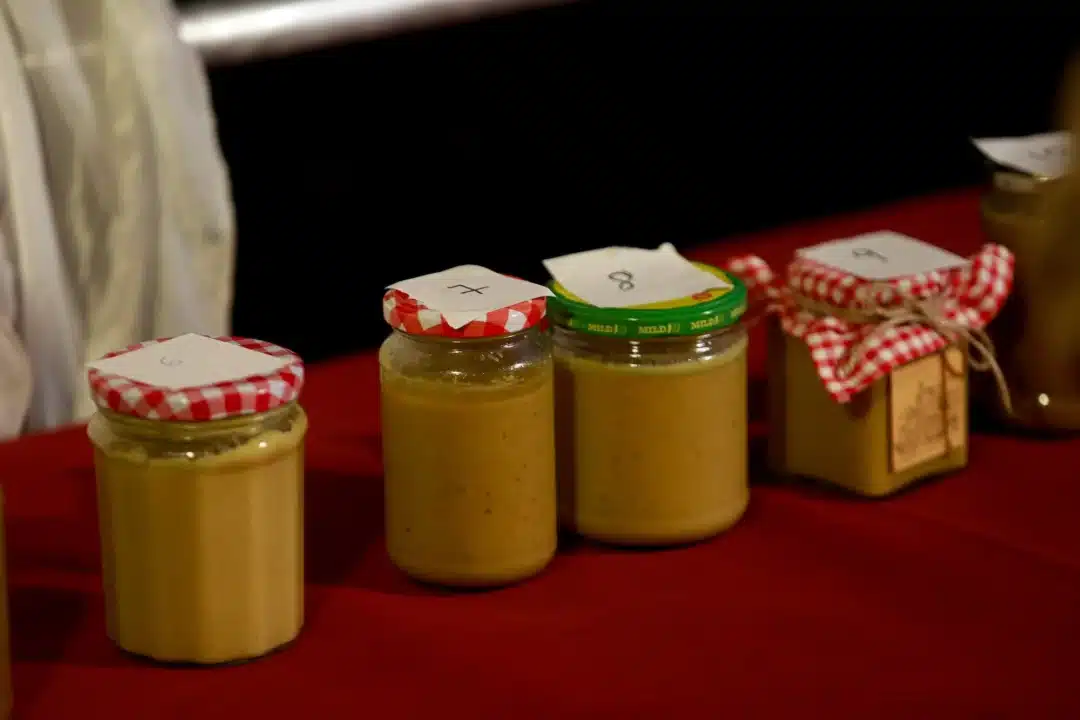
2. Bescuit (Ibicencan Sponge Cake)
Accompanying the Salsa de Nadal is the bescuit, a delicate and airy sponge cake that complements the rich sauce perfectly. Made from simple ingredients like flour, eggs, sugar, aniseed, yeast, butter, and milk, the bescuit requires careful preparation to achieve its characteristic light and fluffy texture.
While the recipe may seem straightforward, mastering the technique is often a matter of family tradition, with secrets passed down through generations.
3. Turrón Payés (Peasant’s Nougat)
In the rural southwest of Ibiza, some families prepare turrón payés, a traditional nougat that adds a sweet note to the Christmas festivities. This confection typically features a base of ground almonds, sugar, eggs, lemon zest, and cinnamon powder. Variations may include candied fruits or quince paste, reflecting the personal touches of each household.
The turrón payés is a testament to the island’s agricultural heritage and the resourcefulness of its people in creating delightful treats from local produce.
4. Sofrit Pagès (Peasant’s Stir-Fry)
Beyond desserts, the Ibicencan Christmas table often features hearty dishes like sofrit pagès, a traditional stew that embodies the island’s rustic culinary traditions. Historically prepared during significant celebrations such as Christmas and Easter, this dish combines various meats—typically chicken, lamb, and local sausages like sobrasada and butifarró—with potatoes and other vegetables.
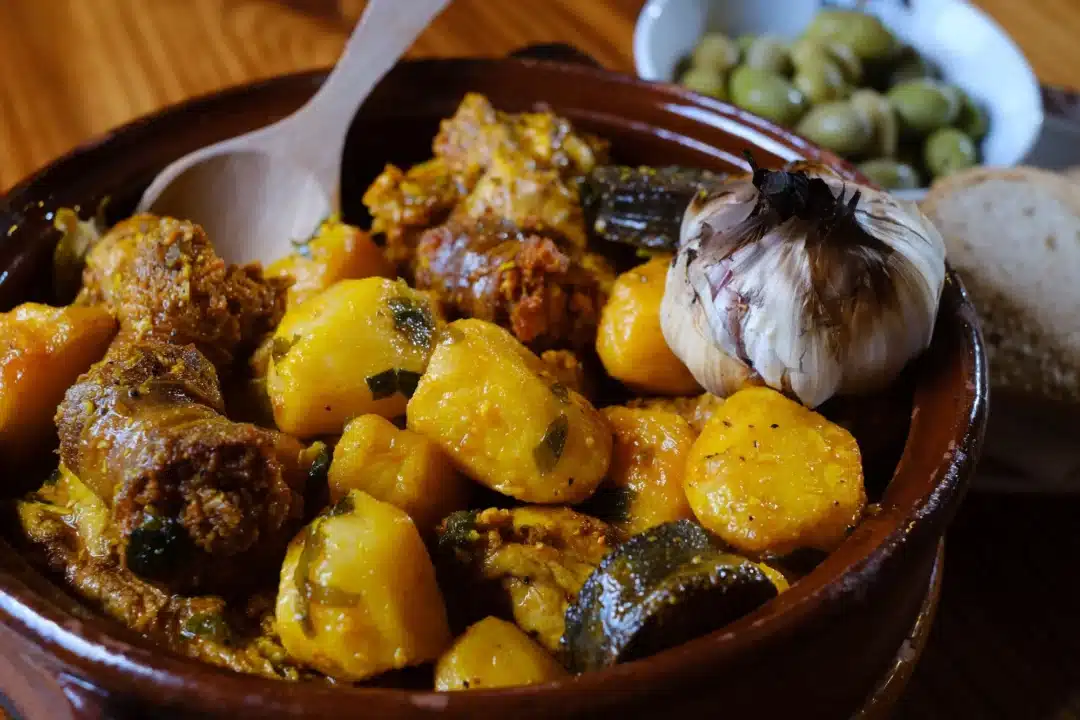
The stew is seasoned with spices including cinnamon, cloves, saffron, and paprika, resulting in a rich and flavourful meal that brings warmth to the festive table.
5. Bullit de Peix (Fish Stew)
Another staple of the Ibicencan Christmas feast is the bullit de peix, a traditional fish stew that showcases the island’s abundant seafood. This dish features a variety of local fish, such as grouper, John Dory, or scorpionfish, cooked with potatoes in a savoury broth. The fish and potatoes are typically served with a generous dollop of allioli, a garlic and olive oil sauce, while the remaining broth is used to prepare a flavourful rice dish known as arroz a banda.
The bullit de peix exemplifies the island’s maritime heritage and the importance of communal dining during the holiday season.
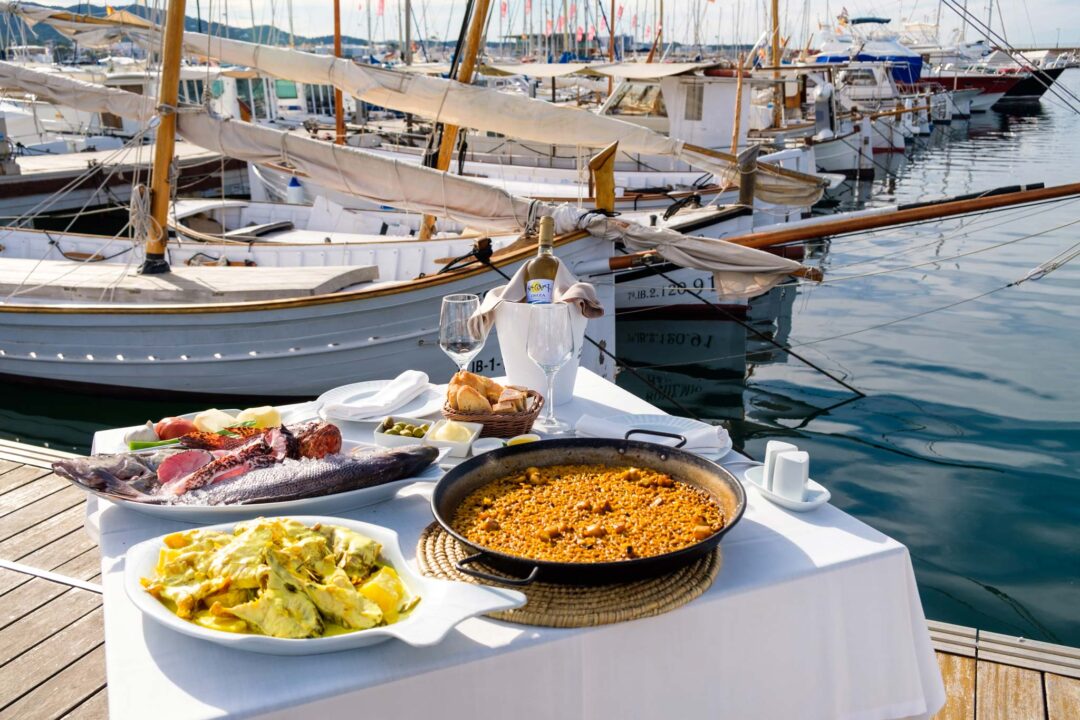
6. Flaó (Cheese Cake)
For those seeking a lighter dessert, the flaó offers a delightful option. This traditional Ibicencan tart is made with fresh goat or sheep cheese and flavoured with mint, giving it a unique and refreshing taste.
The flaó has medieval origins and remains a beloved treat during Christmas and other festive occasions. Its delicate balance of sweet and savoury flavours makes it a fitting conclusion to a hearty Christmas meal.
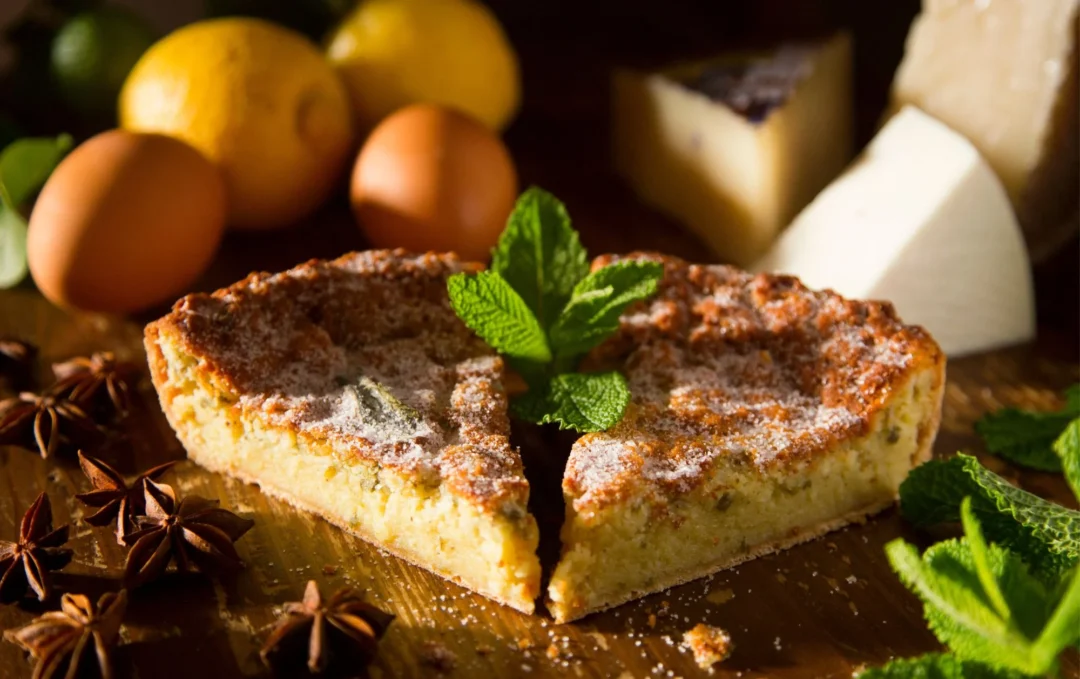
7. Greixonera (Bread Pudding)
Another cherished dessert is the greixonera, a bread pudding that exemplifies the island’s tradition of culinary resourcefulness. Typically made from leftover ensaimadas—a type of sweet pastry—this pudding combines the pastries with milk, eggs, sugar, and cinnamon, resulting in a rich and comforting dessert.
The greixonera is often enjoyed during the Christmas season, highlighting the Ibicencan ethos of minimising waste and creating delicious dishes from simple ingredients.
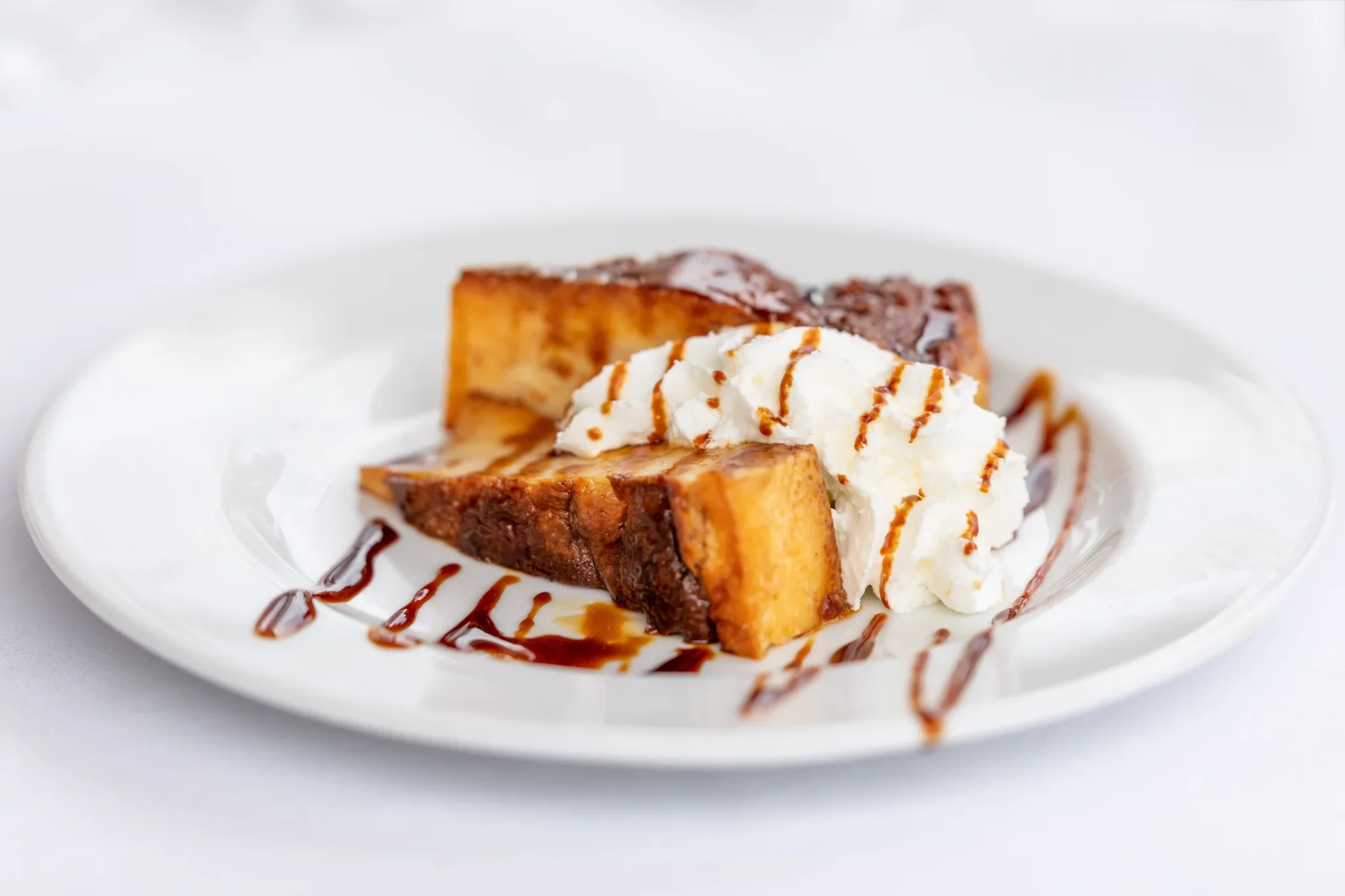
8. Hierbas Ibicencas (Ibicencan Herbal Liqueur)
No Ibicencan Christmas celebration would be complete without a glass of hierbas ibicencas, a traditional herbal liqueur that serves as a digestif. This aromatic spirit is made by infusing aniseed liqueur with a variety of local herbs, including thyme, rosemary, and fennel. Each family often has its own recipe, resulting in subtle variations in flavour.
Enjoyed at the end of a festive meal, hierbas ibicencas encapsulates the island’s rich botanical diversity and the convivial spirit of the holiday season.

The traditional Christmas dishes of Ibiza offer a rich tapestry of flavours that reflect the island’s cultural heritage and the importance of family and community during the festive season. From the labour-intensive Salsa de Nadal to the comforting sofrit pagès, these dishes are more than just food—they are a celebration of Ibicencan identity and the enduring joy of sharing a meal with loved ones.

